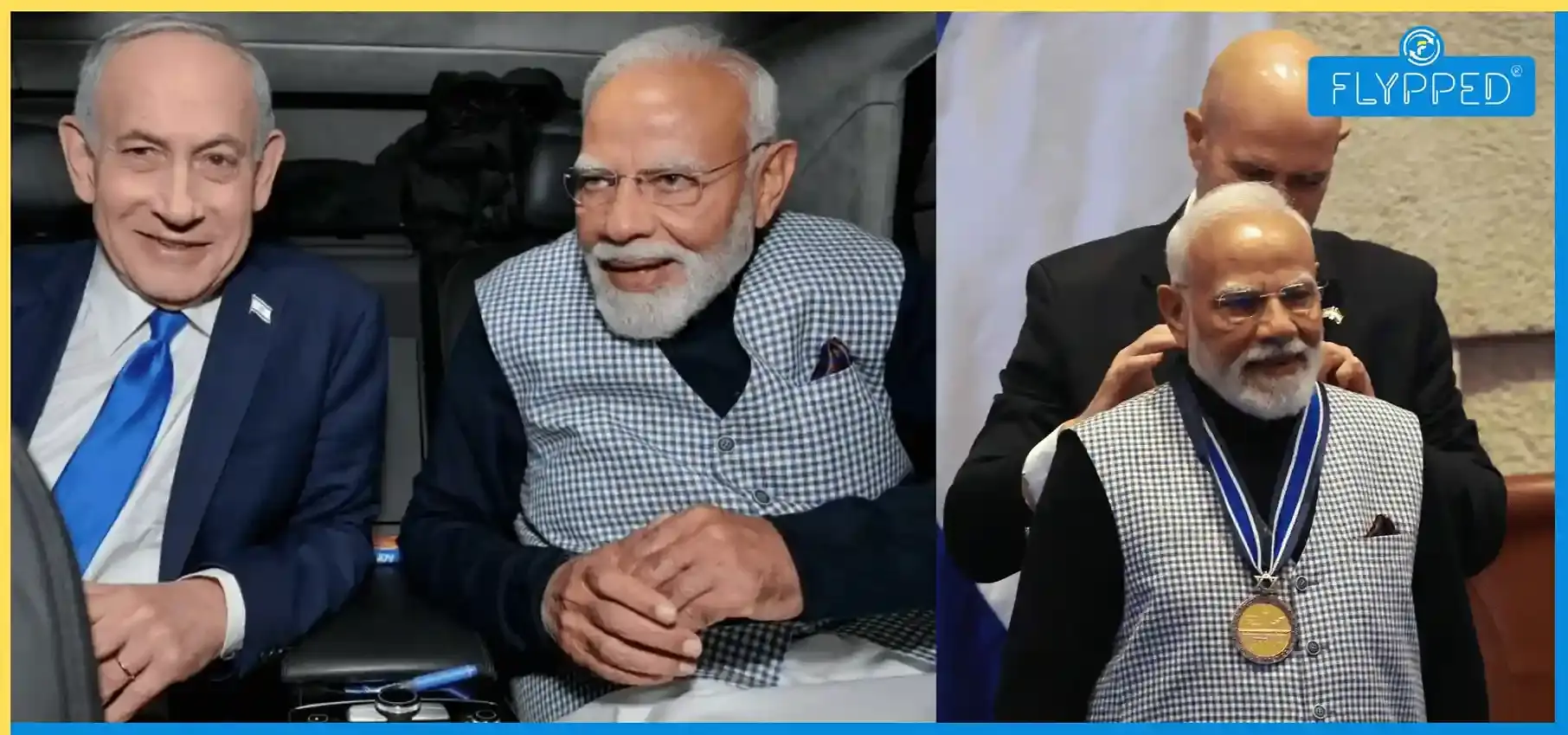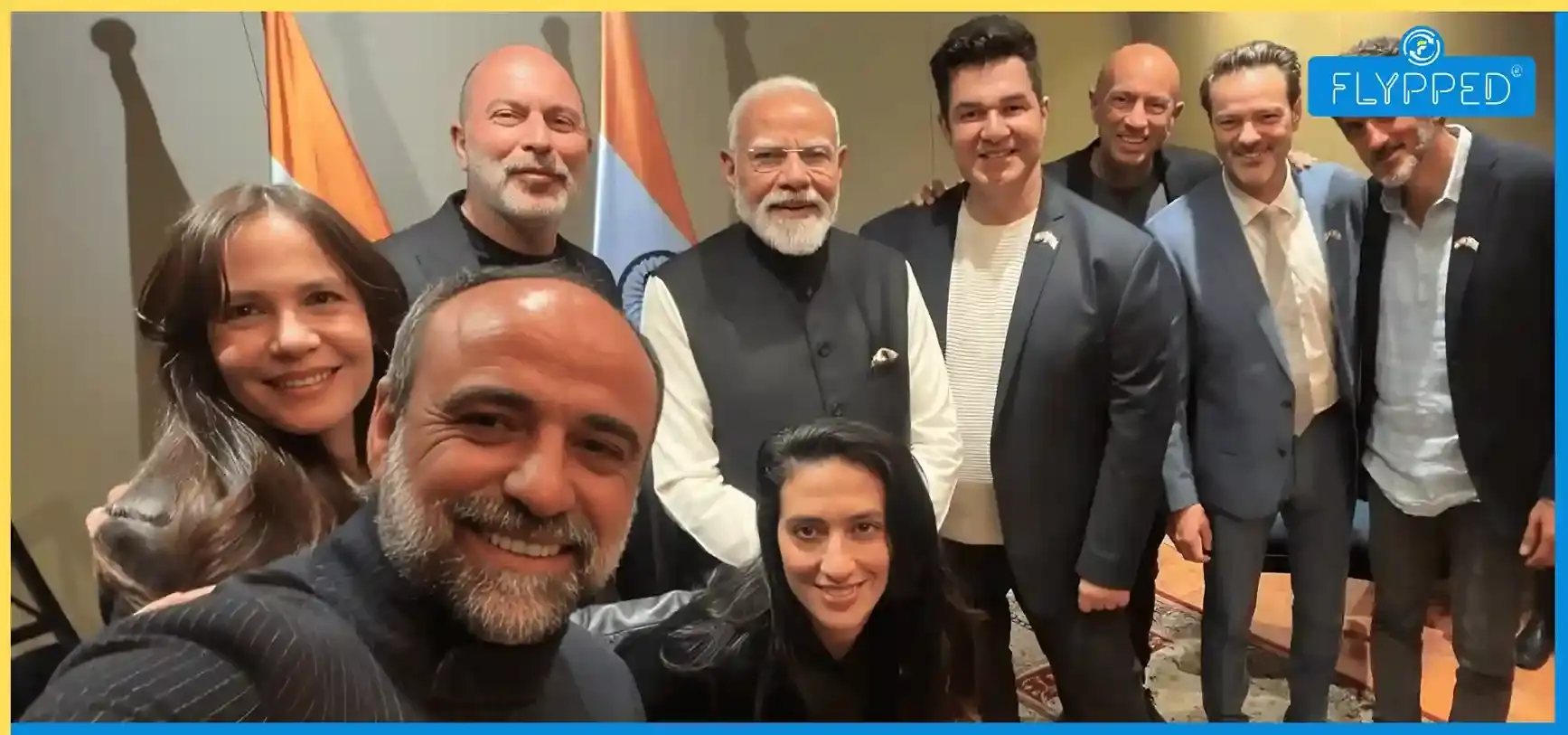A New Chapter in India-Tanzania Relations: Highlights from PM Modi's Meeting with President Samia Suluhu Hassan
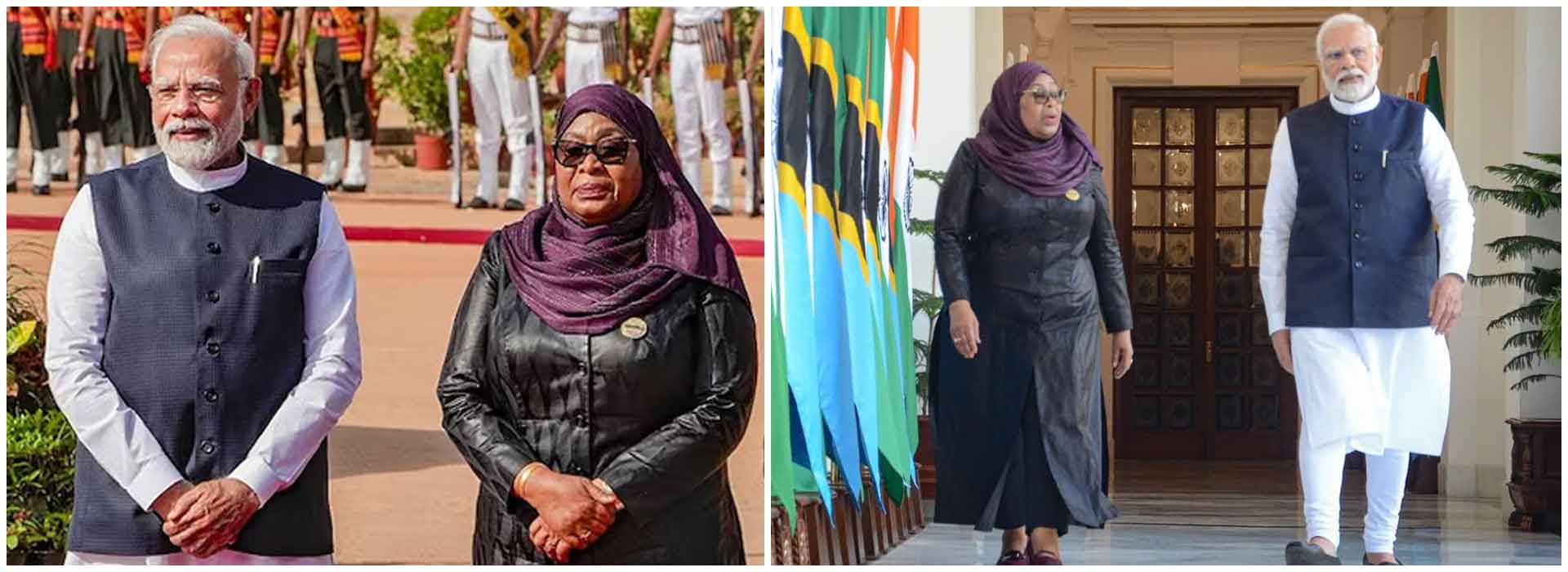
In the realm of international diplomacy, bilateral meetings between heads of state play a crucial role in shaping the course of relations between nations. One such significant diplomatic encounter occurred when Indian Prime Minister Narendra Modi met with Tanzanian President Samia Suluhu Hassan. The meeting, marked a pivotal moment in the India-Tanzania relationship, promising to usher in a new chapter of cooperation and partnership.
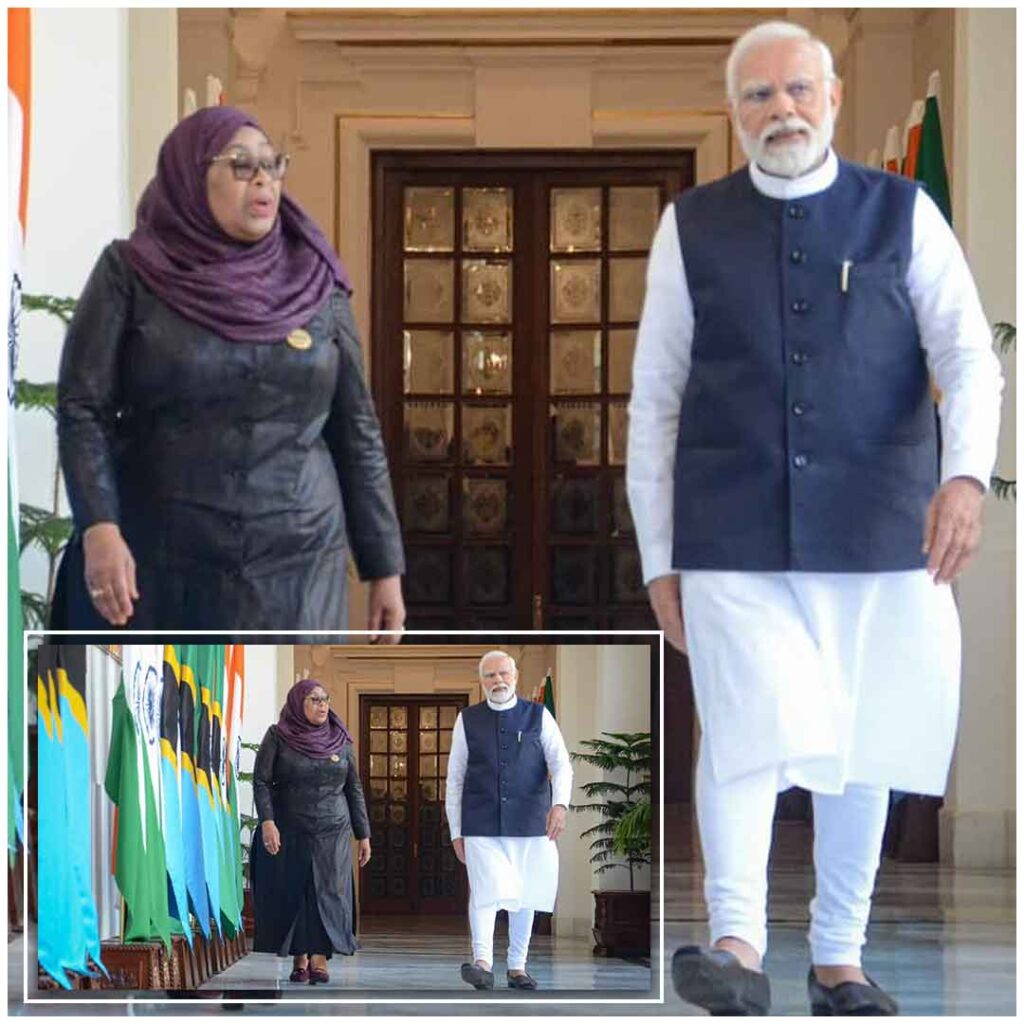
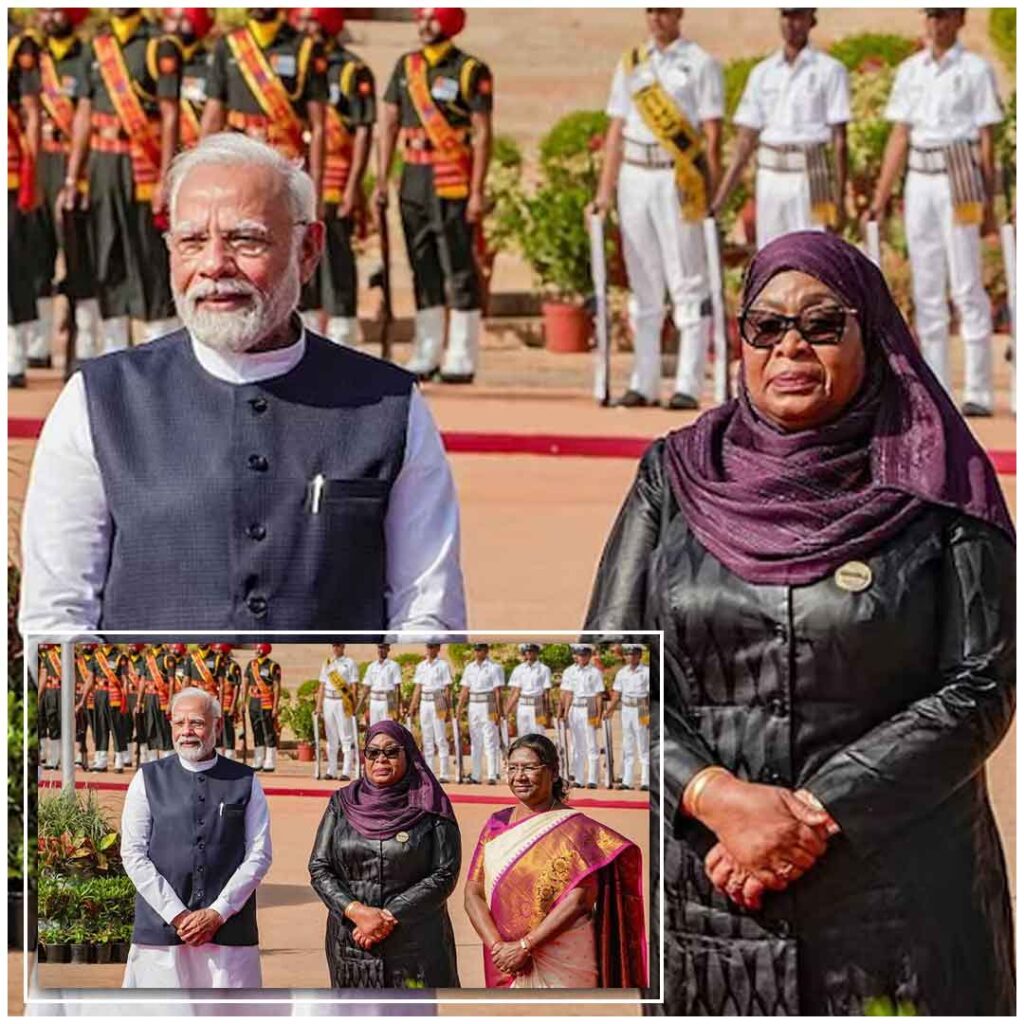
Strengthening Historical Ties
India and Tanzania have a history of friendly relations dating back several decades. The meeting between PM Modi and President Samia Suluhu Hassan sought to build upon this historical foundation and reinforce the bond between the two nations. It provided an opportunity to explore avenues for enhanced cooperation in various domains, ranging from trade and investment to security and development.
Economic Collaboration
One of the focal points of the meeting was economic collaboration. Both leaders expressed a shared commitment to boosting trade and investment between India and Tanzania. President Samia Suluhu Hassan welcomed Indian businesses to explore opportunities in Tanzania, highlighting the country's growing economy and strategic location as a gateway to the East African region. Prime Minister Modi emphasized India's willingness to support Tanzania in its development endeavors, including infrastructure projects, technological advancements, and capacity-building initiatives. The discussions also revolved around strengthening bilateral trade, exploring opportunities in sectors like agriculture, pharmaceuticals, and renewable energy.Healthcare and Education
The meeting underscored India's commitment to assisting Tanzania in key areas such as healthcare and education. PM Modi announced initiatives to promote healthcare collaboration, including the supply of medical equipment, training for Tanzanian healthcare professionals, and joint efforts to combat diseases. Educational ties were also highlighted, with discussions on scholarships and educational exchange programs to foster academic cooperation.
Cultural Exchanges and People-to-People Ties
Cultural exchanges and people-to-people ties were recognized as essential components of the India-Tanzania relationship. Both leaders emphasized the importance of promoting cultural understanding and cooperation through initiatives such as cultural festivals, art exhibitions, and educational partnerships.Security and Regional Cooperation
Security concerns in the region were also on the agenda. Both leaders discussed regional issues, including maritime security and counter-terrorism efforts. They expressed a commitment to working together to enhance security cooperation, recognizing the shared interest in ensuring peace and stability in the Indian Ocean region.Climate Change and Sustainability
Climate change and sustainability were critical topics in the discussion. Both India and Tanzania acknowledged the importance of addressing climate change challenges and emphasized the need for collective action. The leaders explored avenues for collaboration in renewable energy projects, climate resilience, and environmental conservation efforts.Conclusion
The meeting between Prime Minister Narendra Modi and President Samia Suluhu Hassan marked a significant step forward in the India-Tanzania relationship. It reaffirmed the historical ties between the two nations and laid the foundation for a new chapter of collaboration and partnership. The discussions encompassed a wide range of areas, including economic cooperation, healthcare, education, security, cultural exchanges, and environmental sustainability. As India and Tanzania move forward, the commitments made during this meeting are expected to materialize into concrete actions that will benefit both countries and contribute to regional stability and development. The diplomatic encounter not only deepened bilateral relations but also highlighted the shared values and aspirations of India and Tanzania as they work together to address global challenges and pursue mutual prosperity.Click to read the full article

